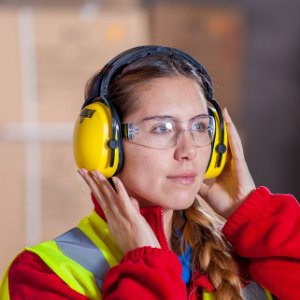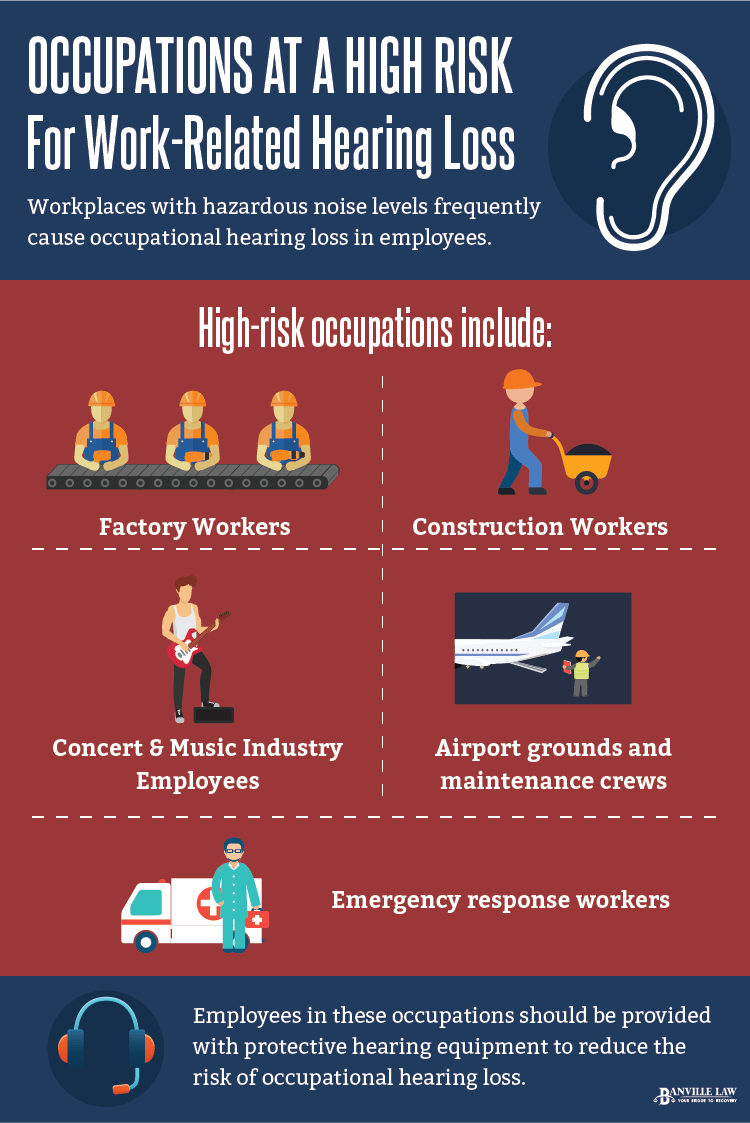Have you noticed that your hearing has deteriorated after several years of working in a noisy environment? Or maybe you’ve experienced hearing loss in a sudden and traumatic workplace accident. In any case, it’s important to know that work-related hearing loss is treated the same as any other work injury or illness and that this condition is covered under workers’ compensation.
In certain industries, hazardous noise levels are a part of the job. Exposure to these noise levels may cause hearing loss to slowly develop over time. Many sufferers of this condition may not realize that their hearing has become impaired until the damage becomes severe and irreversible.
If you even suspect that your hearing is damaged, you should meet with your doctor and express your concerns. If he or she believes the impairment is work-related, you should begin the process of filing for workers’ compensation. While hearing loss is usually irreversible, you can limit the damage by removing yourself from a work environment with hazardous noise levels.
Work-related hearing loss claims have specific time limits. If your hearing loss occurred in a single isolated accident, then the time limit is the same as other accidental injuries – set at two years from the date of the injury. For example, if you were struck in the ear by a falling tool on a construction site, this time limit would apply.
If your hearing loss is occupational (i.e. slowly developed due to working conditions), then you must wait three months from the date you stopped working around harmful noise levels, or three months after you’ve left your job, and file within two years from the end of that three-month period.
Read more on other work-related injuries: https://banvillelaw.com/workers-compensation/

In some workplaces, hazardous noise levels are an unavoidable circumstance. In such workplaces, it’s vital for employers to provide proper protective hearing equipment and to train their employees in hearing loss prevention. Occupational hearing loss can almost always be prevented if the proper safety rules are strictly followed.

Workers in the following occupations frequently require compensation for work-related hearing loss:
According to the National Institute for Occupational Safety and Health (NIOSH), noise levels over 85 decibels are considered hazardous and have the potential to cause damage.
For a frame of reference, here are some examples of noise levels which exceed this limit:
As you can see, it’s not hard to exceed this noise level in everyday life. While being around a large truck or going to the occasional rock concert may not immediately damage your hearing, consistently being exposed to these levels during the course of the work-week can eventually cause serious impairment.
After the 3-month waiting period has expired, you should meet with an otolaryngologist (ear, nose, and throat doctor) who has been approved by New York’s Workers’ Compensation Board. During your appointment, you should be as detailed as possible in regards to your condition, your work environment, and your job duties.
The doctor will make an evaluation on whether you have hearing loss, if it’s work-related, and will fill out a form for you. This will act as your medical evidence when you file for workers’ comp.
Like all other occupational injuries and illnesses, workers’ compensation will cover your medical expenses and a portion of your lost wages. For permanent hearing loss, you would also be given a schedule loss of use award – this provides additional compensation which is based on which body part is injured and the degree of impairment. This amount will vary depending on the extent of your hearing loss.
Applying for workers’ compensation is never as easy as it should be, and this is especially true for occupational diseases like hearing loss. Your employer and their insurance carrier are likely to argue that your condition is not related to your job duties. These insurance companies aren’t out to help injured workers, they’re out to maximize their own profits.
They’ll have their own skilled attorneys who specialize in denying claims for workers’ compensation. It’s only fair that you have your own experienced New York occupational hearing loss attorney to represent your interests.
At Banville Law, we know how the system works and we know how to respond to attempts at obstruction from insurance companies. Our attorneys have developed a strong reputation, which means that these companies are much more likely to approve your claim in a timely manner if we’re there to represent you.
Check out our next article on muscle and nerve injuries: /workers-compensation/injuries/muscle-nerve/